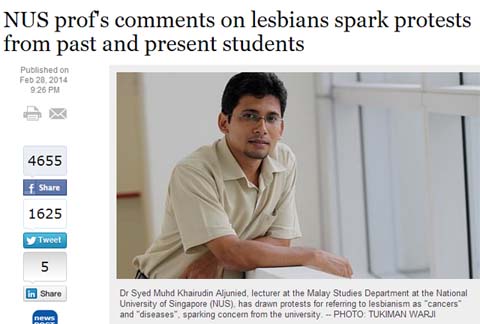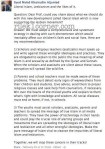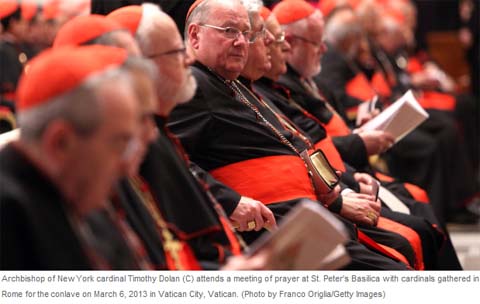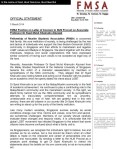When the story first broke, what struck me most was the focus on lesbians. It is far more common in anti-LGBT speech for the reference to be either directed at gay males or framed with reference to gay male sex, at least in Singapore and the West. But coming from a lecturer in Malay Studies, I wasn’t surprised.
On 20 February, Syed Muhd Khairudin Aljunied made a post on Facebook in which he lambasted “liberal Islam” and its support for lesbianism, describing them not only as “wrongful ideologies” — a matter of opinion, perhaps — but also as “diseases” and “cancers”. The latter may have stepped into hate speech.

As the story in the Straits Times (headline shown above) shows, it generated protests and several petitions.
 Now, before I go further, it is important to look at what Khairudin actually said. An anonymous comment led me to the Rilek1Corner site which had a screengrab (see thumbnail at left). His Facebook post seems to have been an answer to a question by an unnamed person, concerning a “new development” in which liberal Islam may be affirming unorthodox sexual identities. In his answer, Khairudin suggested giving advice, going to “proper religious classes”, and seeking help from counsellors. He urged using the “power of technology” to alert groups and movements about spreading these “wrongful ideologies”.
Now, before I go further, it is important to look at what Khairudin actually said. An anonymous comment led me to the Rilek1Corner site which had a screengrab (see thumbnail at left). His Facebook post seems to have been an answer to a question by an unnamed person, concerning a “new development” in which liberal Islam may be affirming unorthodox sexual identities. In his answer, Khairudin suggested giving advice, going to “proper religious classes”, and seeking help from counsellors. He urged using the “power of technology” to alert groups and movements about spreading these “wrongful ideologies”.
The recommendation may sound reasonable, even if we disagree with his view. Nevertheless, the dehumanising tone he used to describe lesbians — and for that matter, adherents of “liberal Islam” too — is what made the post stand out.
I have on several occasions argued that homophobia is deeply linked to insecurity stemming from a loss of male privilege. You get clues to this when you read some of the things Pope Benedict XVI used to say, speaking of both “radical feminism” and “homosexual lifestyles” in virtually the same breath, and how both have undermined “family life”. Traditionalists’ conception of a happily ordered family is one where the husband is the dominant member, and where the sexes had clearly demarcated roles. Feminism, which argued for equality and autonomy for women, was a serious threat. The gay rights movement sprang from this, making the point that true autonomy includes autonomy in sexual orientation and gender identity.
It is not easy to see this linkage between feminism and gay rights when one looks at the speech of the US-based Christian Right, and that may be why we forget that there is a link. This, in my view, is because in the US, it has become socially impossible to speak openly against equality for women. Thus, even as the Christian Right goes ballistic over gays and lesbians, they know it won’t be politick to attack heterosexual women as well.
However, this does not mean they don’t engage in side actions that try to limit women’s autonomy. The same people also tend to support tighter restrictions on abortion. But they have cleverly packaged it as a “right to life” issue, not as an “attack women’s right to control their bodies” issue, which in reality it is.
Islam is much less reticent about speaking out against equality and autonomy for women. I used to joke that Muslim clerics aren’t as prominent in attacking the LGBT movement as the Christian Right because they were too busy trying to control women. Things may be changing now, not because they are any more accepting of equality for women, but because the LGBT issue has made enough progress that we can’t be ignored any longer.

But it is probably no coincidence that the religions that feel most threatened by this “deadly mix” of feminism and gay rights, and are more explicit about linking the two, are the ones that still segregate men and women, either in prayer halls or in clerical roles. Gender distinctions are not just important in Islam and Roman Catholicism, they are part of the teaching. It is much easier for them to speak out against both feminism and gay rights simultaneously than it is for conservative Protestants, who have already conceded the point on women’s equality (even if they have not internalised it).

This dual threat perception comes together to explain why the question that Khairudin had to answer focussed on lesbians. Lesbians represent both a refusal to be subordinate to men and a challenge to heteronormativity. They are the “worst of the worst”.
As an aside, here is a talk by Manal al-Sharif about her fight for dignity and freedom for women in the most conservative of Muslim countries, Saudi Arabia:
* * * * *
In the wake of the news reports, I asked around if anyone knew Khairudin or had heard him speak on previous occasions. One friend gave me a particularly interesting answer, painting a negative picture of the man. She had attended one (or maybe more than one — I didn’t clarify with her) lecture by him and came away with the impression that he was insufferably sexist. She remembered how the notion of male privilege and dominance held up many of the ideas he propounded.
The other strong impression she came away with was his condescension towards Malays. She said, “His opening remarks was something along the lines of ‘I want to stress that while my field is Malay Studies, I myself am not Malay, but Arab’. Why was it necessary to stress that? He then added, ‘However, I married a Malay wife,’ and saying how much he ‘loved’ Malays.”
My friend got quite agitated just retelling this to me. I don’t blame her. It sounds awfully like people who say, “I have nothing against gays, in fact some of my best friends are gay, but . . . ”
 It’s a bit ironic then that a group called Fellowship of Muslim Students Association (FMSA), responding to petitions being circulated, described in a statement it issued,
It’s a bit ironic then that a group called Fellowship of Muslim Students Association (FMSA), responding to petitions being circulated, described in a statement it issued,
Dr Syed Khairudin is an icon of the Malay/Muslim community in the field of academic achievement. He continues to play a contributing role to the Malay/Muslim community and the mainstream society.
Another thing you’d note from the FMSA statement is its reference to a “Neo-Sodom-Gomorrah community”, presumably newly coined by them. However, as playwright Alfian Sa’at pointed out,
They do use the term LGBT as well, which clearly shows that the coinage is a silly and childish attempt at testing the limits of provocative and inflammatory speech.
Which brings me back to the question of hate speech.
* * * * *
There is at least one petition calling on the university authorities to sanction Khairudin for committing hate speech. Khairudin’s defenders argue that if the university did so, it would be a violation of academic freedom.
Where is the line between academic freedom and hate speech? It may be hard to draw, for indeed there is value in allowing space for counter-mainstream, even offensive ideas. But a necessary test may be whether the idea being espoused is intellectually grounded: What is the basis for the idea? How sound is it?
This test may be easier to apply in some disciplines than others. It is, for example, quite clear that advocating the “truth” of creationism can seek no protection from academic freedom, but arguing the moral value of large-scale genetic engineering of humans — well, that may not be so clear-cut.
But lost in the debate about whether Khairudin was exercising his academic freedom is this: Was his Facebook posting on a matter that was within his area of expertise? It is doubtful. From what little I know, his area is that of Malay Studies, which I would think is quite distinct from Islamic Studies. He was pronouncing on religion, particularly on liberal Islam. I am sure there are scholars out there with much deeper knowledge about Islamic perspectives.
This is important. A professor of monetary theory can have no special claim to be an expert on transgender identities.
If on balance his passing judgement on liberal Islam and lesbians wasn’t within Khairudin’s area of expertise, then the greater laxity that one might give for academic freedom will not apply. He was in fact just exercising his right to free speech, the same right that you and I have. That speech will need to be tested on the same basis as anyone else’s speech for hate content. So the question comes back to this: Is labelling a class of people a “disease” and “cancer” something that would cross the line? Suppose one said that the migration of dark-complexioned people from such and such a place to Singapore was a “cancer” — would that be OK? Suppose one said that a new religion making inroads and gaining adherents was a “disease” infecting Singapore society, would that be acceptable?
POST-SCRIPT
In Straits Times’ Breaking News,
The National University of Singapore (NUS) professor who drew criticism last week for referring to lesbianism as “cancers” has been counselled by the university.
In an e-mail to all faculty members, staff and students on Wednesday, NUS provost Tan Eng Chye said he had counselled Associate Professor Syed Muhd Khairudin Aljunied, who acknowledged that his original post “reflected poor judgment in the tone and choice of words”.
Prof Tan, who is also NUS deputy president of academic affairs, said Dr Khairudin’s comments “contained provocative, inappropriate and offensive language”.
— Straits Times, 5 March 2014, NUS professor “counselled” by university for Facebook posting on lesbianism, by Pearl Lee
In a Clarification Statement which I found on Rilek1Corner (the source was Khairudin’s Facebook page) he wrote that he has not removed the original post, except the words “cancer” and “social diseases”. He also wrote that “My position as a Muslim about LGBT remains clear and is in line with the view of Muslims scholars”, and that “There is no disagreement in Islam on the prohibition of homosexuality.” Although Khairudin stressed that this was his personal view, the sense one gets from the foregoing is an attempt to invoke his religion for justification and defence.


Freedom of speech is a two-way street.
If Khairudin believes it is within his personal right to voice his disdain on the LGBT community, then surely it should be within my right to call out the sexist, misogynistic, irrational, superstitious, abd violent teachings of Islam.
However, I think you would find that while Christians and Moslems in this country are quite happy to denounce, insult and denigrate others in the name of exercising their “right to faith”, the same liberty is not accorded to their detractors. Any perceived slight to their religion would most certainly be met with threats of police reports or legal prosecution.
In my personal view, I believe we should all have the right to say whatever we want. Khairudin is within his right to express his view on the cancerous lesbians, and in response, we should be allowed to ridicule his [3 words taken out] Prophet for “consumating” his marriage with his nine year old “bride” Aisha (one of many many wives).
Alex – in case you believe the last paragraph would cause trouble to your blog, please feel free to remove it.
>“radical feminism” and “homosexual lifestyles” in virtually the same breath
historically there was indeed a close association between the two during the 70s women’s liberation movement; the former is currently not fashionable – probably because it in some ways harmed women’s interests (e.g., there has been an increase in the proportion of households in which women raise children without men thus suffering economic hardship), while lesbianism stuck around
threat to home stability posed by sexual lifestyles is a justifiable concern, but historical experience shows that men abandoning family to be with younger women are far more responsible for family breakup than homosexuality; social conservatives are mostly barking up the wrong tree
“Barking up the wrong tree” – Perhaps because it is easier for them to focus on a scapegoat than on their own infidelity and divorces.
young women used to think it shameful to accept advances from married men (ha! too ugly to find single young guy?), but such stigma seems not to matter any more; anyone cares to comment why there has been such a change?
Young men used to think it shameful to accept advances from married women (ha! too afraid to find single young gal?), but such stigma seems not to matter any more [citation needed]; anyone cares to comment why there has been such a change?
[ tongue somewhere in cheek]
E.o.M.
[While we are on the subject of male privilege and gender and sexual equality , what about young men and older married men, and young women and older married women?]
Hi Alex Alfian here. Wanted to say that maybe there’s a bit of a generalisation going on with the statement, “But coming from [a] lecturer in Malay Studies, I wasn’t surprised.” You later mention that Khairudin’s expertise was in Malay studies, and not Islamic studies, so I think you recognise that there’s a possibility that the Malay Studies department should not be assumed to be a hotbed of conservatism. As a matter of fact, the Fellowship of Muslim Students’ Association, I’ve been told, do not actively participate in Malay Studies activities, especially those pertaining to the literary arts.
Also, as to why ‘lesbianism’ was singled out in the initial answer…my theory is that this is a response to an article going around written by a very articulate Malay-Muslim lesbian female (which was picked up by The Real Singapore and rilek1corner.com and given an additional headline describing her as a Malay PSC scholar). I think this was what was so threatening–an outspoken, intelligent and out Malay-Muslim girl speaking her mind…suddenly this breach of silence became a ‘problem’ requiring a religious response.
I don’t expect scholars in Malay Studies or Islamic Studies to be necessarily conservative. I do expect them to be intellectually rigorous as befitting any scholar. However, I also know that there is a culture of conformity in Singapore generally, possibly stronger within the Malay/Muslim community, and this conformity tends towards conservatism — gender- and sexual orientation-wise. Thus it wasn’t a great surprise that Khairudin said what he said.
I’ve also separately heard about the preceding events regarding a PSC scholar, but there is a case for not highlighting it any more because I am told she’s traumatised enough by what rilek1corner has done. So I was in two minds whether to mention it; but now that you have spilled the beans 🙂 . . . .
Although the concepts of Malay and Muslim / Islam are extremely intertwined, I believe there is a case for saying Malay Studies expertise does not mean you are also an academic authority on Islamic Studies?
E.o.M.
“Academic freedom”?? It’s not only the case that those comments do not come within the ambit of his academic expertise on which he is allowed “freedom” to express responsible, professional opinions. But more; they are not irrelevant to an assessment of his character and mental ability that befit him or not as a human person, and as an academic. NUS must consider whether a person as prone to such prejudice and ignorance as one making those untoward comments can be trusted even when teaching and researching in his professional capacity. Just recall what happens usually at NUS staff recruiting interviews. Aren’t issues of character, and intellectual abilities reflected in candidates’ “general knowledge”, etc., importantly relevant?
I think there is a huge difference between things that you have a choice (religion, political alignment, diet etc etc) and things that you do not have a choice (gender, sexual orientation, height, skin colour, etc etc).
The applications and implications are very different.
*ok, some might argue about the gender bit these days, but I am sure readers would know what it means, and that sex change is not available or accessible to all*
AA: “So the question comes back to this: Is labelling a class of people a “disease” and “cancer” something that would cross the line?”
I think it depends on context (and power, and other things). If it was said in a central European context (in particular in Germany), in particular with regard to Jews (but also gypsies, homosexuals were targetted by the Nazi regime too, besides other groups), then there would be a huge public outcry, someone would make a report to the police, and independently of that, I believe, the state attorney would be required to investigate. The thinking (and the related laws) behind it would go like this: calling a group with particular characteristics (race / ethnicity, political beliefs, gender, sexual orientation, class, religion) as cancerous dehumanises them and may lead to physical action against them. I don’t think that was the intention of the professor. I am glad the university authorities stepped in. I wonder whether NUS has a minorities committee or similar – I understand that SMU set one up last year but am not up to date whether it is operational yet.
Intention is not magic. The lecturer’s intentions are opaque to anyone but himself and it is irrelevant to speculate on his intentions. We have a historical record of how language is used to dehumanise and inevitably target certain people. That is the only thing that should concern us.